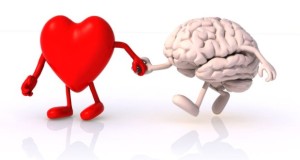
By Traci Patterson
Depression could be breaking your heart. Two of the most common chronic illnesses suffered by both men and women are heart disease and depression.
Research estimates that more than 25 million people in the United States live with heart disease and more than 31 million Americans have had at least one episode of major depression during their lives. Surprisingly, most people do not realize that these conditions are closely linked. In observance of American Heart Month, Mental Health America of Greater Houston joins the fight for healthy hearts and also healthy minds.
“Depression not only affects your brain, it affects your entire body–including your heart,” says wellness advocates, Mental Health America of Greater Houston.
According to the National Institute of Mental Health:
- Over the past two decades has shown that people with heart disease are more likely to suffer from depression than people without heart disease.
- People with depression are at greater risk of developing heart disease.
- People with heart disease who are depressed have an increased risk of death after a heart attack compared to those who are not depressed.
About one in three people who have survived a heart attack will have at least one episode of major depression.
Some studies show that people with heart disease are more likely to suffer from depression than otherwise healthy people. While researchers are unsure exactly why this occurs, they do know that heart attacks are closely linked with depression and that some symptoms of depression may reduce your overall physical and mental health, increasing your risk for heart disease or making symptoms of heart disease worse. Fatigue or feelings of worthlessness may cause a person to ignore their medication plan and avoid treatment for heart disease. Having depression increases a person’s risk of death after a heart attack.
Symptoms of depression can include:
– Ongoing sad, anxious, or empty feelings
– Feeling hopeless
– Feeling guilty, worthless, or helpless
– Feeling irritable or restless
– Difficulty concentrating, remembering details, or making decisions
– Thoughts of death and suicide or suicide attempts
Symptoms of heart disease can include:
– Chest pain
– Shortness of breath, nausea and extreme fatigue
– Pain, numbness, weakness or coldness in your legs or arms if the blood vessels in those parts of your body are narrowed
– Pain in the neck, jaw, throat, upper abdomen or back
While each person experiences symptoms of depression and heart disease differently, Mental Health America of Greater Houston, suggests that depression is a brain disorder that is treatable along with treatment for other co-occurring illnesses like heart disease.
As advocates for overall patient health, the organization suggests that patients consider and request an integrated healthcare plan to treat depression that co-occurs with heart disease. This coordinated care is managed by a mental health professional such as a psychiatrist, psychologist, or clinical social worker, who is in close communication with the physician and team providing the heart disease care. Integrated healthcare has been shown as an effective course of treatment to improve both illnesses.
Mental Health America of Greater Houston encourages, no matter how advanced the heart disease, no one has to suffer from depression; however, it’s important to remember that recovery from depression takes time.
Don’t let depression break your heart. If you or someone you know is living with heart disease and possibly depression, talk to a primary care or mental health professional.




